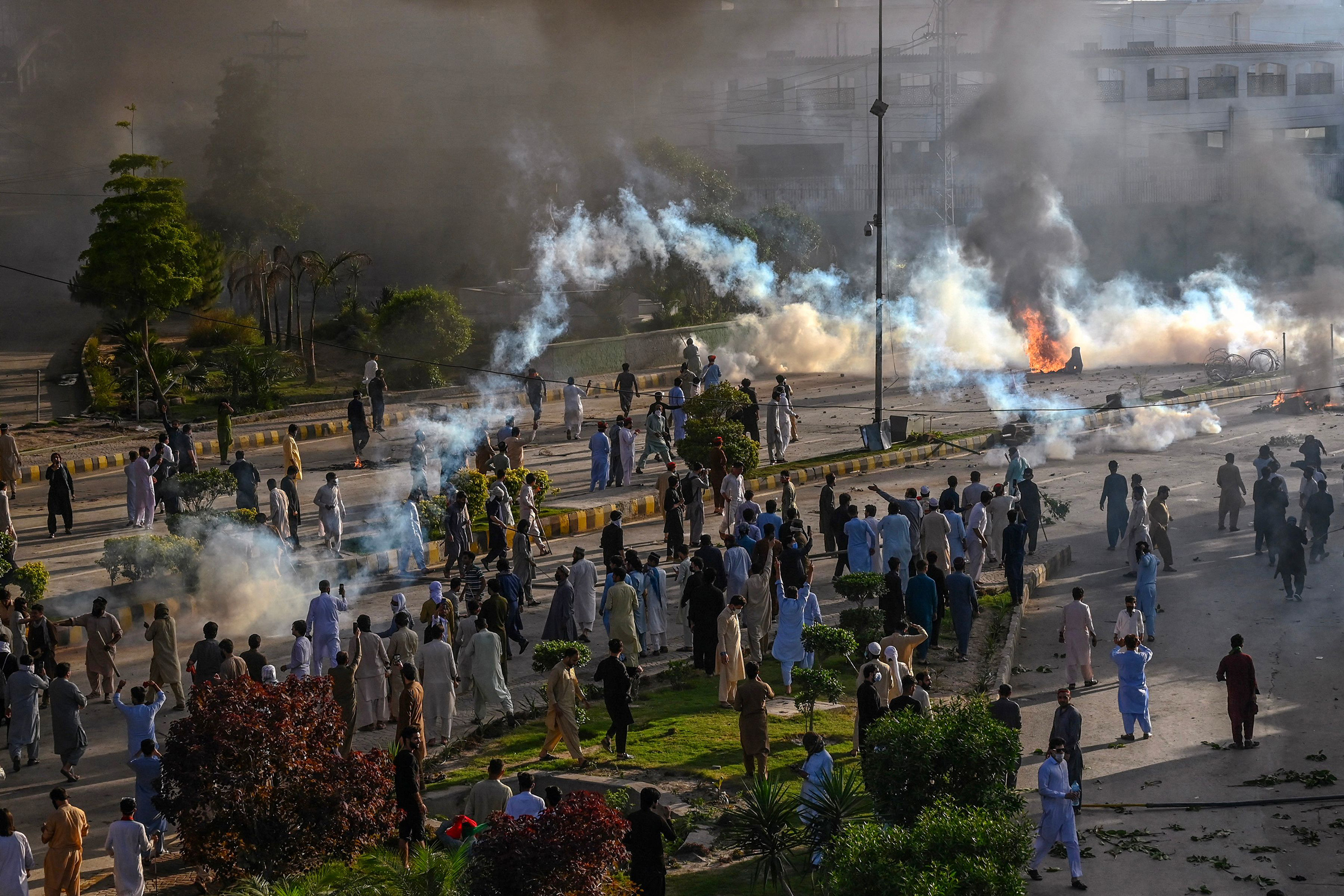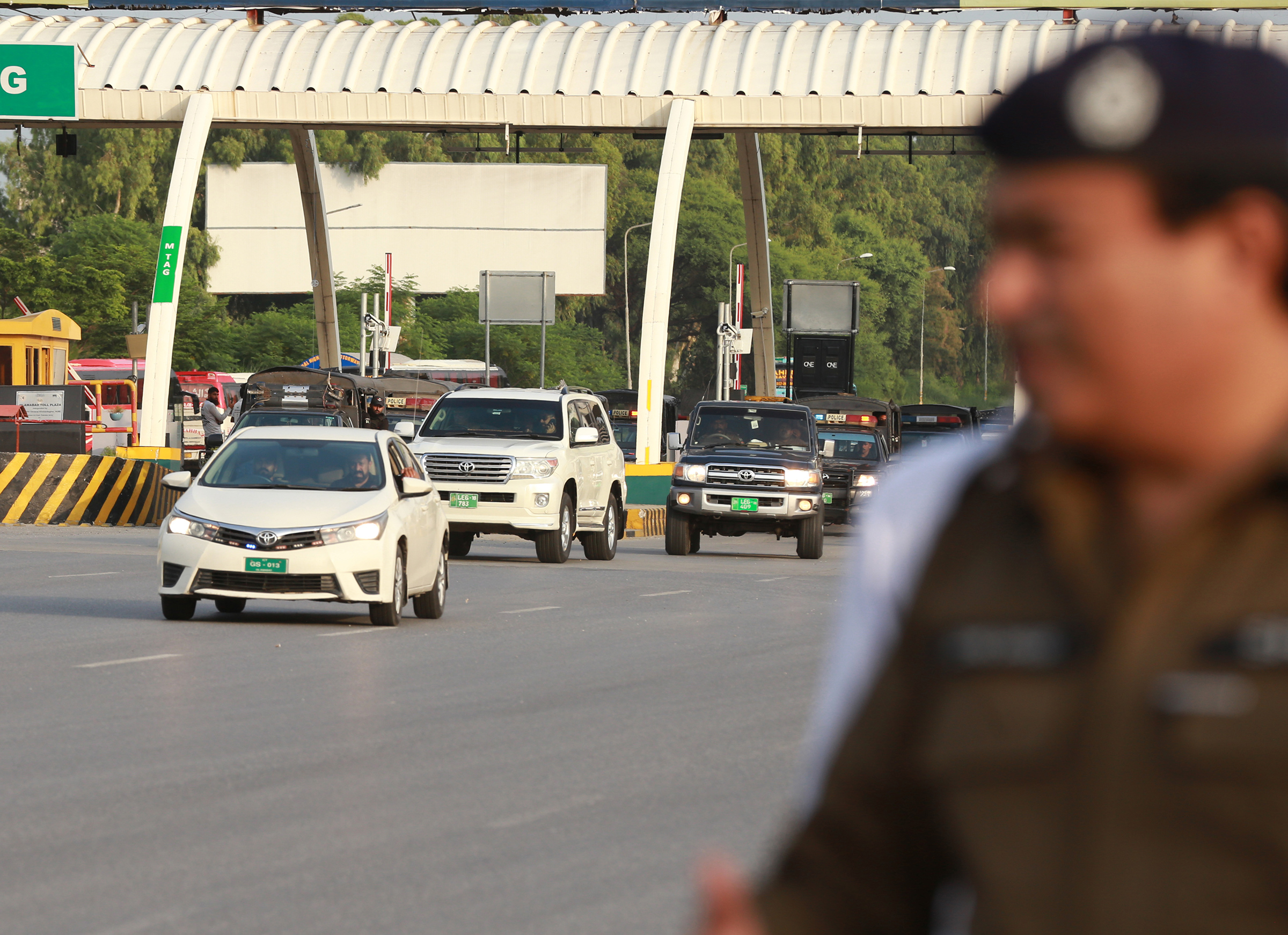Few will have missed the bitter irony of a court ruling against Pakistan’s former Prime Minister, Imran Khan, who was found guilty of corruption, sentenced to three years in prison, and barred from contesting elections for five years. For however his legacy is judged in years to come, Khan will be remembered above all for his single-minded crusade to root out “corruption” from the political fabric of Pakistan.
The ruling against Khan was not unexpected. Since his removal from office following a no-confidence motion in April 2022, as well as his increasingly confrontational posture with the military (which he blamed for his downfall), many believed it was only a matter of time before Khan lost his freedom completely.
With Pakistan’s ruling coalition imminently poised to step down and make way for a caretaker government, Khan’s incarceration was seen as the last bit of unfinished business ahead of general elections. These should be held within 90 days but could come as late as Spring 2024, following a decision on August 5, 2023 by the Council of Common Interests (responsible for overseeing relations between Pakistan’s federating units) to approve the demarcation of new constituencies based on the latest census data—a skillful maneuvering tactic by Pakistan’s all-powerful military, which is desperate to use the time to dampen Khan’s soaring popularity.
This may explain the haste in obtaining a ruling against Khan, which has been widely condemned for its lack of due process. It is clear that neither Khan’s political foes at the head of the ruling coalition nor his erstwhile backers in the military establishment were prepared to take any chances that could scupper their plans to disqualify Khan as a member of parliament and crush any prospect of his return to power.
Read More: Exclusive: Imran Khan on His Plan to Return to Power
And this undemocratic move may well work. The response to his arrest has been relatively muted compared with the violent protests when he was arrested for the first time earlier this year, which convulsed large parts of Pakistan before Khan was released on May 11, 2023 after the Supreme Court ruled that he had been unlawfully detained, as security forces failed to obtain permission to carry out arrest on court premises. The Biden Administration has declared Khan’s arrest “an internal matter,” leaving no doubt that the U.S.—once the target of Khan’s strongest vitriol—is unlikely to come forward in his defense.

Khan could in theory secure a fresh judicial reprieve or regain the confidence of the military leadership by toning down his anti-military rhetoric. But neither is likely—not least for a man who has entered his eighth decade.
But while the fate of Khan’s individual career may well be in doubt, his brand of right-wing populism resting on the idea of “a savior” devoted to protecting the public from “corrupt” politicians will remain for years to come.
That’s because it’s a narrative that Pakistan's generals have methodically honed over many decades as the preferred instrument to shape political outcomes in the country. It now enjoys a life of its own that is, arguably, independent of the fortunes of any single political leader. Although some like Khan and former prime minister Nawaz Sharif, once also the military’s blue-eyed boy, built their careers on the back of this narrative with the military’s blessing, both took their place among Pakistan’s “corrupt” politicians after falling foul of their military sponsors.
Khan’s arrest is a reminder that the country must rethink this narrative and find a new way forward. There are signs that a large swathe of the public is tiring of this narrative. The most significant of these stem from Pakistan's widening “youth bulge” and its fast expanding urban population (an estimated 60% and 40% of the population, respectively) who represent Khan’s core constituency. Their energies must be channelled, for they will not stand to be disenfranchised in the event of Khan's disqualification or worse, a ban on Khan’s party, the Pakistan Tehrik-i-Insaf (PTI).

Opinion polls point consistently to Khan as Pakistan’s most popular political leader. And as if to prove the point, the day after Khan’s conviction, the PTI swept local government by-elections in Peshawar trouncing the government-backed candidate.
While it may be true that, historically, the fate of political leaders in Pakistan has been decided by their relations with the military than by their standing in the polls, it would be rash indeed to ignore its implications against the background of extreme political polarization.
For any elections (whenever they are held) to enjoy even a semblance of credibility requires, at the very least, a voice for millions in Pakistan who have clearly signalled their impatience with old habits of political engineering.
Khan may no longer be able to be that voice, but the military would be unwise to think they’ve just had the last word.
More Must-Reads from TIME
- Why Trump’s Message Worked on Latino Men
- What Trump’s Win Could Mean for Housing
- The 100 Must-Read Books of 2024
- Sleep Doctors Share the 1 Tip That’s Changed Their Lives
- Column: Let’s Bring Back Romance
- What It’s Like to Have Long COVID As a Kid
- FX’s Say Nothing Is the Must-Watch Political Thriller of 2024
- Merle Bombardieri Is Helping People Make the Baby Decision
Contact us at letters@time.com